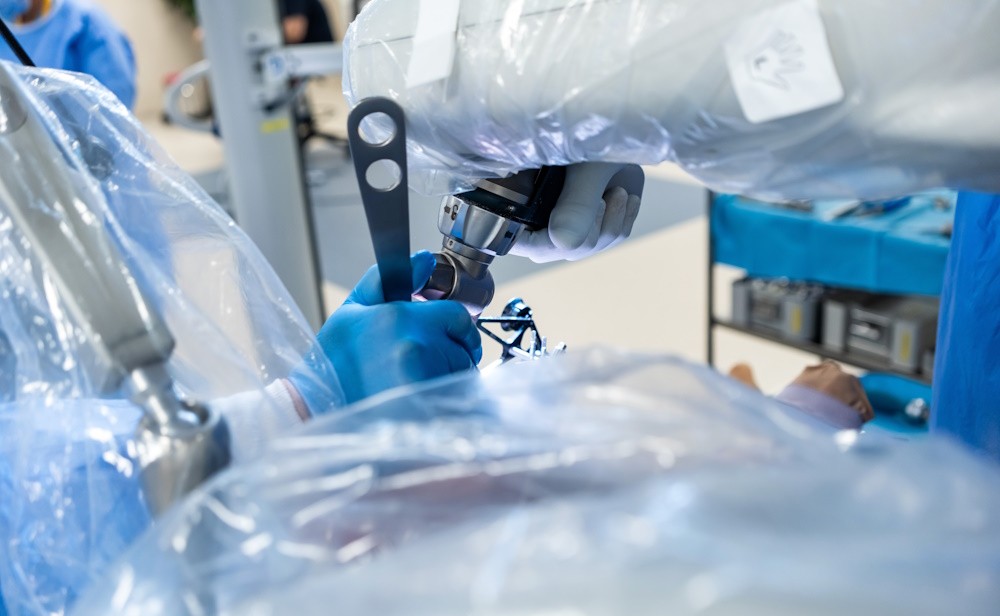Learn About the New Technologies and Techniques Orthopedic Specialists Use During Procedures
“Surgery” is a scary word for most patients, as it’s often associated with pain, discomfort, and lengthy recovery times. As orthopedic specialists, our goal is to find the most effective treatment method with the fewest drawbacks, which is why we usually reserve surgery as a last resort.
Despite a physician’s best efforts, some musculoskeletal issues are so severe or advanced that surgical intervention is a necessity. For example, total joint replacement, ACL reconstruction, and rotator cuff tears are among the most common conditions requiring surgery.
Although there are some medical scenarios that warrant an invasive procedure, patients can take comfort in the fact that the field of orthopedics has advanced in numerous ways over the past decade. Advanced orthopedic surgery utilizes a modern approach to patient care and cutting-edge technology, resulting in higher quality outcomes.
Let’s explore the latest developments in orthopedic surgery, focusing on precision medicine and advanced robotics, which are revolutionizing the field.
The Role of Precision Medicine In Advanced Orthopedics
Precision medicine is a groundbreaking and granular approach to orthopedics, tailoring medical treatment to the individual characteristics of each patient. By considering genetic, environmental, and lifestyle factors, precision medicine provides more accurate diagnoses and better treatment plans.
Precision techniques are changing the face of orthopedic care through personalized treatment plans, genetic testing and biomarkers, and improved implant design.
Personalized Treatment Plans
Orthopedic surgeons create highly personalized treatment plans for each patient. By analyzing a patient’s genetic makeup, doctors can predict how they will respond to different treatments and choose the most effective approach. This individualized care can lead to faster recovery times and better overall outcomes.
Genetic Testing and Biomarkers
Genetic testing and biomarkers are becoming increasingly important in orthopedic surgery, as they can identify patients who are at higher risk for certain conditions, such as osteoarthritis or osteoporosis. Biomarkers can also guide decisions about early intervention tactics, surgical techniques, and postoperative care strategies for each patient.
Improved Implant Design
Precision medicine is also influencing the design of orthopedic implants. Custom-made joint implants based on a patient’s unique anatomy and biomechanics are becoming more common in advanced orthopedics. These personalized implants function better, last longer, and reduce the risk of complications, enhancing the overall success of the surgery.
Advanced Robotics In Orthopedic Surgery
Robotic innovations are transforming orthopedic surgery with enhanced precision, control, and flexibility. The integration of advanced robotics into surgical procedures is one of the most exciting developments in the field.
Robotic-Assisted Surgery
Robotic-assisted surgery involves the use of robotic systems to aid surgeons during procedures. These systems provide greater precision than traditional methods, allowing for smaller incisions, reduced tissue damage, and faster recovery times. Robotic arms can mimic the movements of a surgeon’s hand with extreme accuracy, ensuring that each cut and movement is precise.
Enhanced Visualization
Advanced robotics often include high-definition cameras and imaging systems that provide detailed views of the surgical site. Three-dimensional visualization and enhanced magnification helps surgeons navigate complex anatomical structures and make more informed decisions during surgery.
Minimally Invasive Procedures
Robotic technologies are driving the trend toward minimally invasive procedures in orthopedic surgery. Smaller incisions mean less postoperative pain, shorter hospital stays, and a quicker return to normal activities. Robotic systems make these minimally invasive techniques more accessible and effective.
Improved Outcomes and Reduced Complications
The precision of robotic systems minimizes the risk of needing surgical revisions, decreases reliance on advanced pain management, and improves overall patient satisfaction.
The Future Of Advanced Orthopedics
The integration of precision medicine and advanced robotics is paving the way for the future of orthopedic surgery. As more orthopedic specialists adopt modern technologies and patient care approaches, it should help reduce many of the common stigmas surrounding surgical treatments.
Of course, the field of orthopedics constantly innovates, which means there are plenty of anticipated trends and advancements on the horizon, including:
- AI and machine learning: Artificial intelligence and machine learning are expected to play a significant role in the future of orthopedic surgery. These technologies can analyze vast amounts of data to forecast patient outcomes, optimize surgical techniques, and personalize treatment plans.
- Regenerative medicine: Advancements in regenerative medicine and orthobiologic treatment, such as stem cell therapy and tissue engineering, hold promise for orthopedic surgery. These techniques can regenerate damaged tissues and accelerate healing processes, reducing the need for traditional surgical interventions.
- Remote surgery: With the mass adoption of telemedicine in the wake of the pandemic, novel concepts like remote surgery are becoming more feasible. Intended for those with geographic challenges, remote surgery enables surgeons to perform procedures using robotic systems from a different location, expanding patient access to specialized care.
How to Contact an Orthopedic Surgeon Near You In Wichita, KS
The future of orthopedic surgery is bright, with precision medicine and advanced robotics leading the charge. As these advanced orthopedic innovations are refined, they will enhance the effectiveness and personalization of surgical care and improve patient outcomes.
Although orthopedic specialists have greater access to modern surgical tools and technologies, many invasive procedures can be avoided with the right orthopedic care and treatment plan. If you are currently suffering from chronic pain, discomfort, or lack of mobility, consulting with a qualified orthopedic physician is the best course of action. Typically, there are numerous treatment options and advanced pain management techniques they can try before resorting to surgery.
Call (316) 630-9300 to schedule an exam with one of our orthopedic specialists.

